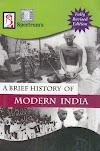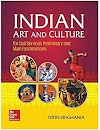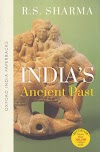Difference between Parliamentary and Presidential form of government
Parliamentary form of Government
- Here the executive is a part of the legislature.
- Ministers are from the parliament only and if not then he/she has to acquire the membership of the parliament within 6 months.
- Council of ministers/executive/government is responsible to the popular house or lower house which in case of India is Lok Sabha.
- It puts greater stress on the responsibility of executive, i.e., it brings more accountable government however with lesser stability.
- Here, Council of ministers is represented by the Prime Minister who is the head of the government though the President is the head of the state but in reality, the President is only the nominal head of the state with real executive powers resting with the council of ministers headed by the PM.
- Separation of powers exists in both forms of the government but the degree of separation is generally lesser than that of in Presidential form of government.
Presidential form of the Government
- Here the executive and the legislature are clearly two separate body.
- Ministers are not the members of the legislature, i.e., not a member of the parliament. The president chooses its team of ministers from amongst the citizen at large.
- President and his ministers are not quite responsible to the legislature since legislature has got only few tools to hold the government responsible.
- It puts greater stress on the stability of the executive though accountability of the executive and legislative is less.
- In presidential form of the government, the same man, i.e., the President is the real executive head of the state as well as the head of the government.
- Degree of separation of powers in presidential form of the government is more than that of in Parliamentary form of government.
Previous Article - Parliamentary form of the Government
Next Article - Attorney General of India
Notes on other subjects
Optional Subject
Note - This is my Vision IAS Notes (Vision IAS Class Notes) and Ashutosh Pandey Sir's Public Administration Class notes. I've also added some of the information on my own.
Hope! It will help you to achieve your dream of getting selected in Civil Services Examination 👍





0 Comments